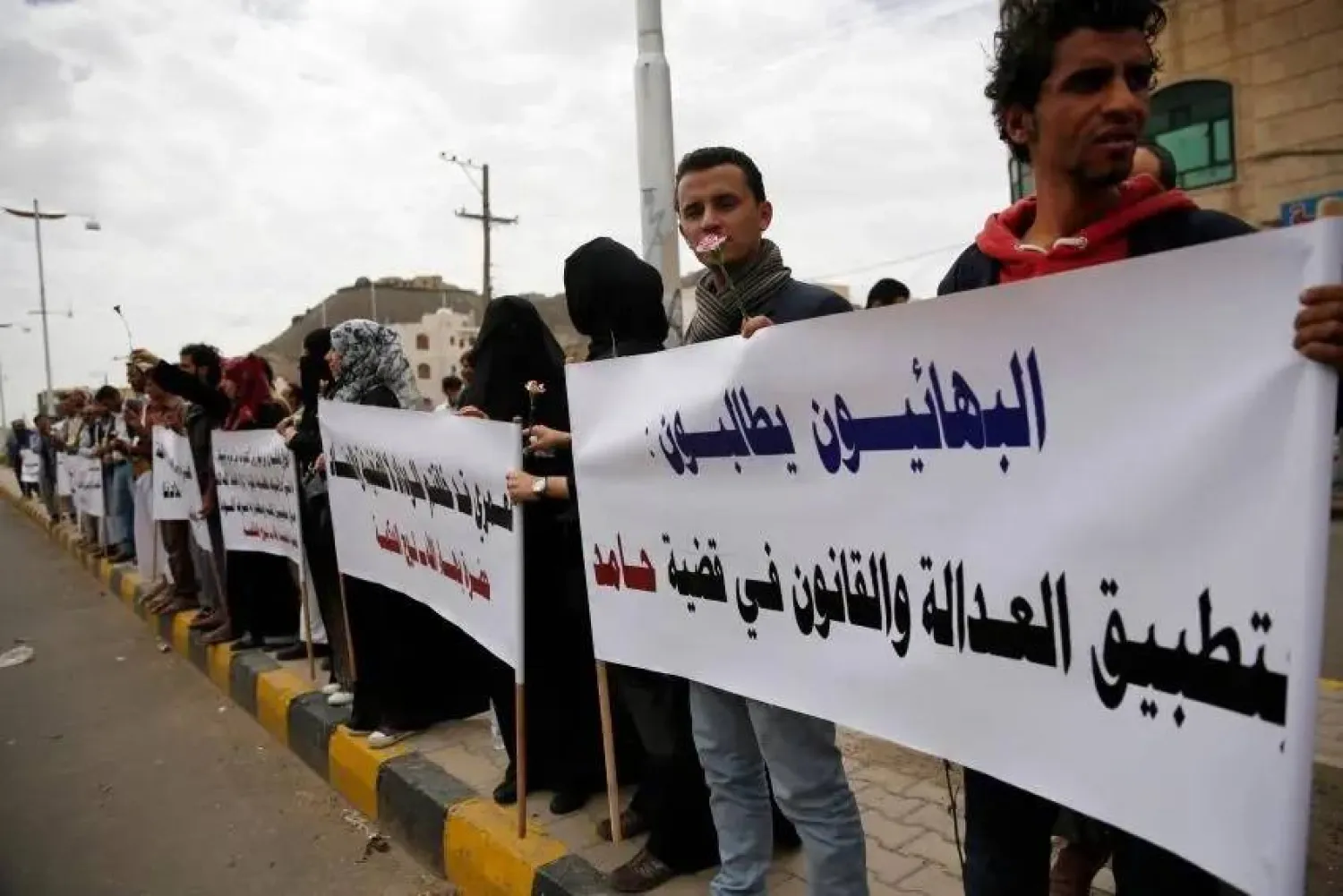The UN Human Rights Office of the High Commissioner (OHCRH) and the Baha'i International Community condemned the detention by the Houthi authorities in Sanaa of 16 followers of the minority Baha'i faith.
The UN Human Rights spokesperson Jeremy Laurence expressed "serious concern" about the Houthis' detention of a group of followers of the Baha'i community and a subsequent sermon by the Houthi Mufti in Sanaa, Shamseddin Sharafeddin, inciting hatred against the Baha'is and other religious sects.
The Office urged the immediate release of the 16 people still being held incommunicado and condemned the use of any language that incites discrimination and violence, particularly against minorities, and often leads to forced exile and displacement.
The UNHCR spokeswoman said that on May 25, security forces stormed a peaceful meeting of Baha'is in Sanaa.
"Seventeen people, including five women, were forcefully taken to an unknown location, and their books, phones, laptops and other belongings confiscated."
The Houthis later released one of the detainees.
The Commission stated that during a sermon in Sanaa, the Mufti accused the detained Baha'i followers of apostasy and being traitors and said they should be killed if they did not repent.
The Commission deplored the use of such language, which starkly defies international law, reminding Houthis authorities in Sanaa that they must respect the human rights of people under their control.
It asserted that human rights guarantee minorities, among other things, the right to profess and practice their religion and the right to a fair trial before an independent and impartial tribunal.
The statement stressed that "pre-trial detention should be the exception and should be used only if reasonable and necessary, based on an individual assessment of each case."
- A bloodcurdling sermon
The Baha'i International Community (BIC) denounced the speech of the Houthi Mufti, describing it as a "bloodcurdling sermon filled with disinformation and hate against Yemen's Baha'i community."
The organization said that the sermon came after masked Houthi gunmen stormed a peaceful Baha'i gathering, detained 17 persons, and took them to unknown locations managed by the security services.
The BIC has reason to believe the detainees are being mistreated in custody.
"The Grand Mufti confirmed the arrest of the 17 Baha'is by security services before leveling several false and incendiary allegations, claiming that the Baha'i community is supported by foreign powers and had plans to harm the country."
The statement indicated that the Mufti claimed the Baha'is are "dangerous and secretly mislead the people and corrupt young men and women."
He also impugned the moral integrity of Baha'is in family and financial matters.
The organization described Mufti's speech as aiming to incite hatred and suspicion about the Bahá'ís in the minds of the congregants and Yemenis.
It referred to a 2018 speech of the Houthi leader, Abdel-Malek al-Houthi, who warned Yemenis of the "satanic" Baha'i movement that was "waging a war of doctrine" against Islam.
Houthi urged Yemenis to defend their country from the Baha'is.
- Displacement of Baha'i figures
In 2018, a Houthi court issued a death sentence to Hamed bin Haydara, a Baha'i imprisoned since 2013.
Bin Haydara, and five other Baha'i prisoners, were released after international pressure but were deported outside Yemen.
Since taking control of the Yemeni capital, the Houthis deported all Jewish community members and continued to incite against the Baha'i community, accusing them of moral and financial transgressions without providing any evidence to prove such allegations.
Yemeni human rights activists say the demonization of vulnerable minorities is essential to spreading misinformation and inciting the majority of the population against these groups.









